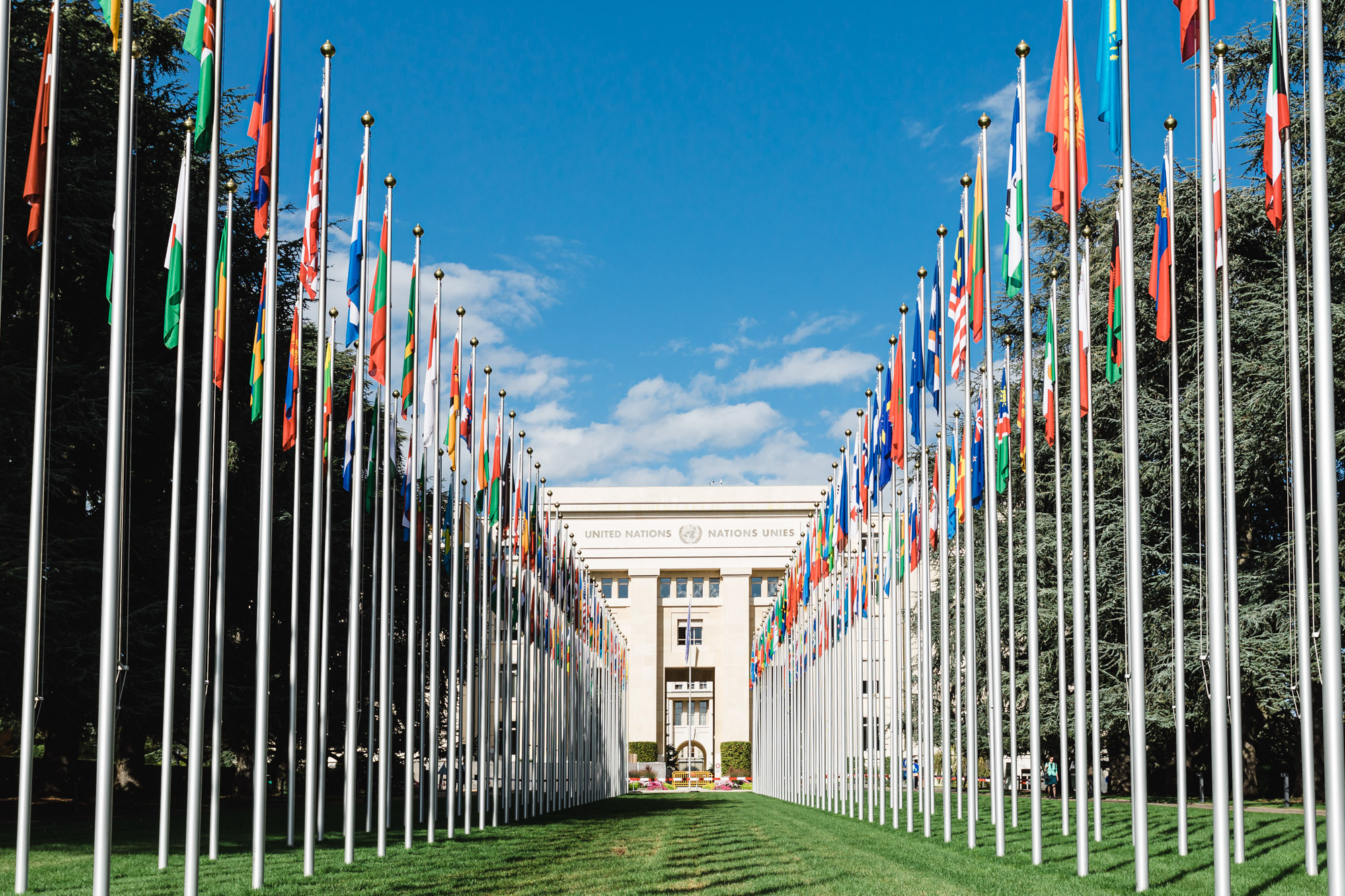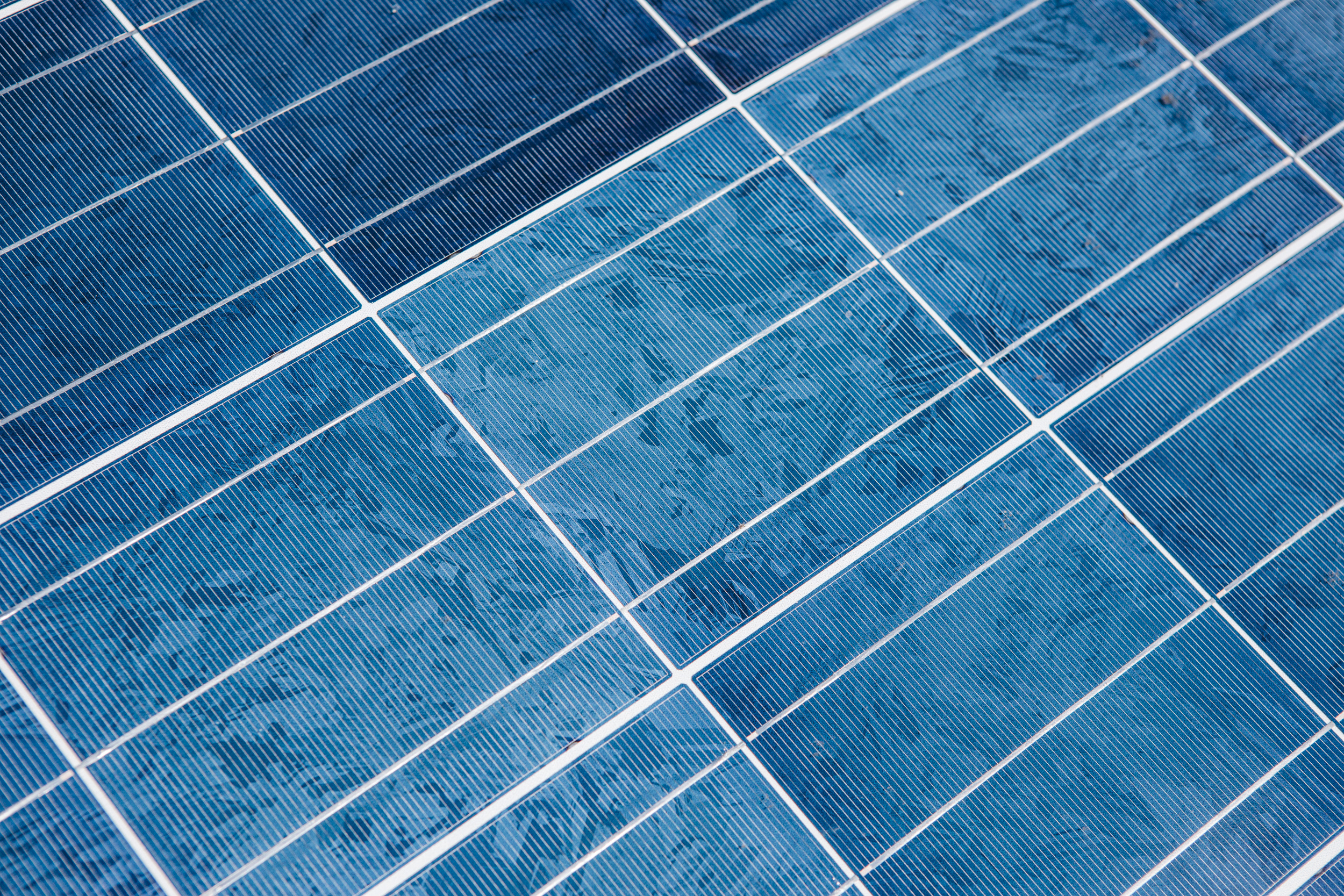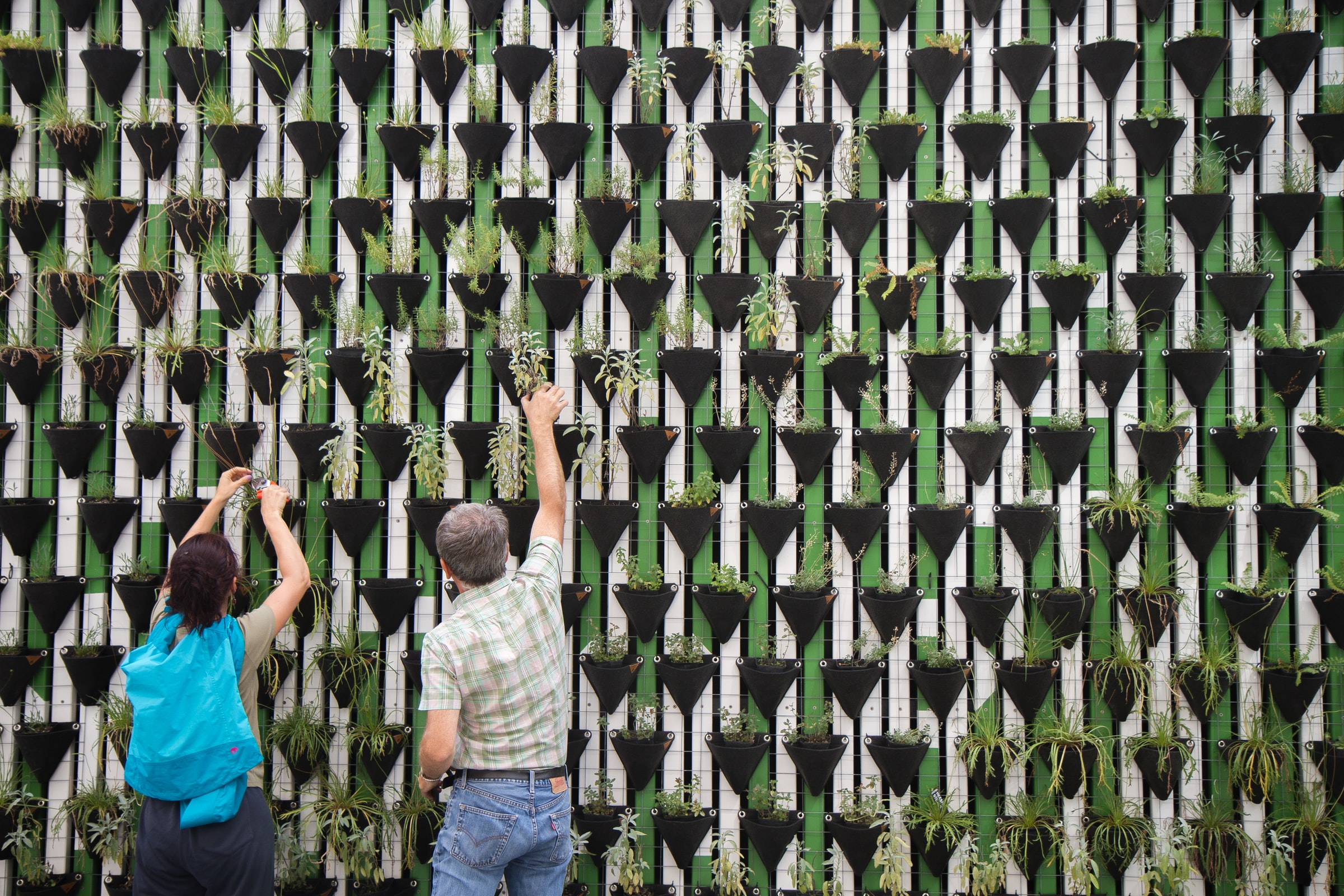Sustainable recovery through sustainable fashion. Europe’s melting glaciers. How green is blue hydrogen? Opportunities in gamifying nature conservation. Supporting clean energy transitions through fossil fuel subsidy reform. Is carbon removal strategy needed and will it make a difference? Forest restoration and tree-planting – what impact for climate change mitigation? Discover these and more online events of the week!
You can also subscribe to Climate Online’s newsletter to be reminded about weekly event updates by e-mail:

Biodiversity & Environment
3 – 11 September
“IUCN World Conservation Congress” by International Union for Conservation of Nature – IUCN and France
The forum is a hub of public debate, bringing together people from around the world to discuss and develop solutions to the world’s most pressing conservation and sustainability challenges. It will demonstrate innovative, scalable solutions to addressing critical challenges at the local and global levels, highlighting efforts of stakeholders from all sectors across the globe – from small island states to entire regions, and from individual to collective actions. The Forum will include a range of events from High-Level Dialogues, to training and capacity building sessions, as well as exhibition and social events. Find event programme here and register to get an online pass here (the cost is EUR130 or EUR45 for youth).
7 September, 15:00 – 17:00 CEST
“Opportunities in gamifying nature conservation” by Luc Hoffmann Institute
NFTs in conservation, the ethics of gambling and is Pokemon Go a model to replicate? Join the team from ‘’Gamifying Nature Conservation’’ as they debate these questions with a panel of experts and reveal the findings of a new research report. It will be a lively discussion and there will be plenty of time for questions.
7 September, 15:00 – 16:30 CEST
“Celebrating the 2nd International Day of Clean Air for blue skies – Observance in Nairobi” by United Nations Environment Programme – UNEP
Join this year’s celebrations and engage in a high-level dialogue among experts and government representatives on policy and actions to tackle air pollution. The event will also discuss findings of key UNEP reports on the subject. The session will be hosted by Inger Andersen, UNEP Executive Director and moderated by Andrea Hinwood, UNEP Chief Scientist and will include panelists from the civil society, academia as well as government leaders discussing the impact of air pollution on health, the economy and climate, remaining challenges and gaps, as well as successful policies and actions. Watch the event here:
7 September, 19:00 – 20:30 CEST
“Bringing the Value of Nature into the Economic Mainstream” by Stanford University
Nature provides numerous benefits to people and essential life support, but the values of nature are often largely invisible in market economies (“nature works for free”). An ongoing partnership between the Natural Capital Project and the Global Trade Analysis Project (GTAP), a global network of researchers and policymakers conducting quantitative analysis of international trade and environmental policies, is working to change this. The integration of global economic models with ecosystem service models can quantify how nature contributes to the economic bottom-line including income, employment, and international trade that are central to government and corporate decision-making.
8 – 9 September
“Third Asia Pacific Clean Air Partnership Joint Forum” by Asia Pacific Clean Air Partnership, UNEP and Ministry of Environment of Japan
Under the theme ‘Build back better for healthy air, healthy planet’, this multi-sectoral forum will convene stakeholders to showcase the region’s progress to beat air pollution and discuss opportunities to accelerate clean air solutions, contribute to carbon neutrality, and support socio-economic recovery. It will contribute to the commemoration of the International Day of Clean Air for blue skies.
8 September, 13:30 – 14:30 CEST
“Europe’s Melting Glaciers” by Geneva Environment Network
As the climate crisis progresses, more and more ice is melting. Presented by Deutsche Welle (DW), “Europe’s Melting Glaciers” show that it is perhaps far too late to save the Alpine glaciers. And now, the dangers caused by tons of melting ice are rising sharply. Every year, climate change is destroying two of the currently 70 square kilometers of glaciers left in the Alps. Watch the documentary screening and discussion here:
9 September, 14:00 – 15:30 CEST
“Wastewater and Emerging Pollutants: Unfolding A Toxic Story” by United Nations Environment Programme – UNEP
This webinar aims to discuss the matters of heavy metal contamination, microplastics, and nutrients with reference to wastewater. It will focus on case studies, projects, and examples that will present the current trends and ways to tackle these issues.
9 September, 15:00 – 16:00 CEST
“Incorporating political-feasibility concerns into the assessment of India’s environmental policies” by Initiative for Sustainable Energy Policy – ISEP
Political-feasibility concerns are at the center of environmental policymaking in the developing world. Yet, these concerns are often not represented in leading decision-support tools that have been used for assessing policies’ impacts on air quality, health, and climate. With a focus on India, this webinar will discuss political and institutional factors that influence environmental policy choices/outcomes in India and the importance of incorporating these factors into quantitative policy assessment tools. Building on a recent open-access paper, the speakers will introduce their efforts to combine political and environmental assessment, including the development of a policy tool.

Climate Policy & COP26
6 – 8 September
“25th Standing Committee on Finance Meeting” by United Nations Framework Convention on Climate Change
Fourth Biennial Assessment and Overview of Climate Finance Flows, including, information relevant to Article 2, paragraph 1(c) of the Paris Agreement. First report on the determination of the needs of developing country Parties related to implementing the Convention and the Paris Agreement. Forum on Finance for Nature-based Solutions and more.
7 September, 9:30 – 11:00 CEST
“Forest restoration and tree-planting – What impact for climate change mitigation?” by Euractiv
Although planting new trees alone cannot solve climate change, when combined with well-thought out restoration of existing forests and reducing emissions, tree planting can play a significant role. Join this virtual conference to discuss the joint impact forest restoration and tree-planting can have on climate change mitigation. Can a project like Life Terra, which aims to plant 500 million trees over 5 years, make a material difference? What lessons can be learnt from such projects and how can they be successfully replicated?
8 September, 9:30 – 10:45 CEST
“Carbon removal strategy – Is it needed and will it make a difference?” by Euractiv
The Intergovernmental Panel on Climate Change (IPCC) scenarios consistent with limiting the temperature rise to 1.5°C show that removing CO2 from the atmosphere is essential. In line with this, the European science academies recommend prioritising deep emissions cuts, but also to start developing a portfolio of carbon dioxide removal (CDR) options. According to several climate stakeholders, emission reductions are not at the pace to meet Europe’s more ambitious climate goals. They claim the importance of carbon removal solutions keeps increasing, but the EU’s strategy and support remains unclear. The European Commission set a cap on removal and has many legislative actions in place – the LULUCF Regulation, the Climate Action Regulation, the Emission Trading Directive, and new legislation containing a nature restoration target. Will these actions lead to an acceleration of carbon removal strategies? Collectively, are they enough to meet the EU’s climate targets?
8 – 9 September
“Climate Neutrality Forum” by JPI-Climate, Mercator Research Institute on Global Commons and Climate Change, RFF-CMCC European Institute on Economics and the Environment and Oxford Net Zero at the University of Oxford
Bringing together leading researchers, policymakers and practitioners working on achieving climate neutrality, the meeting will take place simultaneously at four hubs – Berlin, Milan, Brussels and Oxford – linked together to create a blended event that is both in-person and virtual in nature. The Forum will explore the current scientific and policy context in a series of thematic discussions focused on 4 key challenges: Just Transition and Climate Justice, Immediate Emissions Reduction and Addressing the last 20%, Greenhouse Removal and Nature, Climate Finance and Policy. Through roundtable discussions it will aim to explore the challenges and opportunities in achievement of climate neutrality in Europe and globally in the context of the goals of the Paris Agreement, the statements of policy ambition to 2030 and 2050 and the implications of latest findings provided by the IPCC Working Group I report.
9 September, 14:00 – 16:00 CEST
“Climate ambition beyond emission numbers: an inside look from countries and sectors” by IDDRI
Speakers will present a report that seeks to guide effectively the progressive increase of ambition, as organized by the cycles process of the Paris Agreement. To this aim, it open the box of emission pathways, by considering the multidimensional feasibility conditions that will enable the required far-reaching and systemic transformation towards the long-term goal. This requires to move away from a purely global perspective to reflect the heterogeneous nature of transformations and the multi-faceted aspects of transitions in different sectors and countries. The analysis of the report is primarily conducted through the lens of country and sector perspectives, with the objective to assess progress made and identify remaining critical blocking points and obstacles that would need to be overcome in order to improve the capacity of the country or the sector to align its ambition with the Paris Agreement mitigation objective. The report also analyses whether there are clear, concrete and credible signs of progress suggesting that the Paris Agreement process can be effective to achieve its collective goals.
9 September, 14:00 – 16:00 CEST
“Evaluation of the European Commission’s Carbon Border Adjustment Mechanism Proposal” by European Roundtable on Climate Change and Sustainable Transition – ERCST
Since the beginning of the CBAM Project, ERCST presented the Sectoral CBAM Report with a deep dive into the specificities of individual sectors as well as issues and options of the general CBAM Design. It was followed by the Proposal and discussed with multiple stakeholders in the EU and internationally. During this meeting the ERCST will present the reaction to the CBAM Proposal based on the earlier studies of CBAM design and redlines. Register here.
9 September, 17:00 – 19:00 CEST
“The Importance of International Cooperation to Address Climate Change: Empowering the Role of Youth” by IRENA Youth Talk and Enel Foundation
The talk will focus on the role of youth in international climate and energy cooperation. The webinar be held as part of the “All4Climate” program set up in the run-up to the COP26. By exploring with youth leaders from across the globe how international cooperation can achieve climate and sustainable development objectives, this edition of the IRENA Youth Talk will provide a valuable opportunity for young people to actively contribute to the debate of Pre-COP Youth Event, Pre-COP26, and COP26 to be held in autumn 2021.

Renewables & Energy Transition
7 September, 10:00 – 11:30 CEST
“HEATLEAP Launch Event: Valorising Waste Heat for Enhanced Energy Efficiency” by COGEN Europe
The HEATLEAP project aims to demonstrate the environmental and economic benefits of waste heat recovery systems such as large heat pumps and gas expanders in energy intensive industries by testing these technologies at real scale.
7 September, 11:30 – 13:00 CEST
“Working Group for Optimising European Power Grids – Aligning Incentive Regulation with Public Interest” by currENT Europe
Society’s perception of value changes with the increasing demand for green, smarter, and fairer energy. These significant changes in public demand are challenging system operators to keep the lights on at an affordable cost while also integrating massive amounts of renewables and responding to substantial changes to maintain resiliency against climate change and cyber threats. The caretakers of European power grids, TSOs and DSOs, are embracing the fact that “gold plating” grid assets is not the optimal way to develop the future grid, and that enabling network technology solutions can play an important role in meeting the needs of both today and providing flexibility in the future. By taking this approach to maximising the use of the existing grid, while also building new grid when needed, TSOs and DSOs can deliver huge value for their own network, market participants, and wider society. Incentive regulation can be an enabler of this approach, and ultimately an accelerator of our progress towards a decarbonised grid. A panel of industry experts will form a Working Group and discuss how to close the gap between existing regulation and regulation that can enable Europe‘s ambitious energy and climate goals.
7 September, 13:00 – 15:00 CEST
“Supporting Clean Energy Transitions Through Fossil Fuel Subsidy Reform” by Government of Denmark, International Energy Agency – IEA and International Institute for Sustainable Development Global Subsidies Initiative
Fossil fuel subsidies reduce the price of fossil fuels and distort energy markets, further fuelling the climate crisis. Fossil fuel subsidy reform (FFSR) can not only support transitions to clean energy, but also help make these transitions just and inclusive. This online event will outline how FFSR can contribute to clean energy transitions. The event will specifically focus on practical examples of how to conduct FFSR in a way that supports people by taking into account issues such as gender, health, local community considerations, and broader social impacts. The panel will further focus on ways to approach people-centred clean energy transitions and how to seize opportunities and overcome barriers and challenges related to the issues identified.
7 September, 19:00 – 20:00 CEST
“How Green is Blue Hydrogen?: Study Finds Hydrogen Produced with CCS Produces High Emissions” by Clean Energy States Alliance – CESA
Hydrogen is being widely marketed as a zero- or low-emission source of energy to facilitate the decarbonization of the power sector. While 95% hydrogen is currently produced by steam reforming of methane in natural gas (resulting in carbon-intensive gray hydrogen), many industry experts have proposed introducing carbon capture and storage (CCS) as way to remove greenhouse gases from the process, producing so-called blue hydrogen. Blue hydrogen has been dubbed “clean” hydrogen by gas industry groups and federal agencies, including the US Department of Energy. A new ground-breaking, peer-reviewed study from Robert Howarth at Cornell University and Mark Jacobson at Stanford University determined that blue hydrogen results in significantly higher emissions than burning natural gas or coal for heat and found that the lifecycle greenhouse gas emissions of blue hydrogen are only marginally better than gray hydrogen. The study, “How Green is Blue Hydrogen?” concludes that blue hydrogen is hardly a low-emission source of energy and not a valid climate solution.
8 September, 8:30 – 9:30 CEST
“Opportunities emerge on the rooftops of MENA” by PV Magazine
Blessed with some of the highest levels of solar irradiation in the world, the Middle East and North Africa (MENA) region has almost limitless potential for PV development. And while desert regions outside many of the region’s major cities already host some of the world’s largest PV installations, MENA has been a slower mover when it comes to rooftop solar. But that is set to change. In this webinar, speakers will take a closer look at some latest offerings for the rooftop market and why the Middle East will be a key region in the development of distributed solar in years to come.
8 September, 11:30 – 13:30 CEST
“A Multilateral Approach to Building a Global Hydrogen Economy” by Council on Energy, Environment and Water – CEEW
Developing and deploying a hydrogen economy will be integral to India’s clean energy transition – especially for the decarbonisation of hard-to-abate sectors – and climate action. This session will focus on the multilateral effort required to build such a global hydrogen economy through conducive international policies, technology co-development, pooled finances for demonstrations and pilots, and investments to create markets and scale up deployment. The session will also mark the launch of a new CEEW study, ‘Greening the Steel: Moving to Clean Steel-Making Using Hydrogen and Renewable Energy’.
8 September, 16:00 – 17:00 CEST
“Utilitising European technical assistance for municipal retrofits” by Buildings Performance Institute Europe – BPIE
This webinar will dive into European technical assistance and how it supports cities across Europe by giving them the tools to lead the change towards net zero carbon by 2050 and unlock the huge potential of their existing buildings. The webinar will also present the multi-level energy renovation impact framework that enables cities to measure the diverse benefits of renovation projects across environmental, social and economic factors, and to identify which of these can be scaled up to the regional and national level.
9 September, 9:00 – 11:00 CEST
“Ministerial Dialogue on Clean Energy Transitions & Economic Resilience in the Middle East and North Africa” by International Energy Agency – IEA
The Ministerial Dialogue – co-hosted by Oman’s Minister of Energy and Minerals Mohammed bin Hamad Al-Rumhi and IEA Executive Director Fatih Birol – addresses the particular challenges that energy transitions present for economies in the Middle East and North Africa, as well as the tangible opportunities for those countries to increase economic resilience and prosperity for the region and its people.
9 September, 16:00 – 17:15 CEST
“The road to COP26: what is the role of biofuels?” by Euractiv
Discussions will address land use and sustainability issues; debates food security; second generation and advanced biofuels; voluntary certification and traceability within supply chains; Brazil’s new National Policy on Biofuels and its decarbonisation credits (RenovaBio and CBios); the UK’s Renewable Transport Fuel Obligation (RTFO); and the use of biofuels in sectors that are harder to electrify (such as shipping and aviation). Join for this webinar to discuss the best strategies to reduce the carbon footprint of the transport sector, with panelists from different sectors both in Brazil and the UK.

Sustainability & Circular Economy
7 September, 14:00 – 16:00 CEST
“Sustainable Recovery through Sustainable Fashion: A Focus on the Environmental Dimensions” by United Nations Environment Management Group
This dialogue intends to facilitate an exchange of different approaches to address the environmental facets of the Sustainable Fashion Nexus, especially in pursuit of sustainable recovery from the COVID-19 context, and with an emphasis on the UN system’s programmes. Partners will share knowledge of updated initiatives, challenges, and capacity gaps – the discussion will apply both a micro- and macro-lens. The Micro-lens will have a peer-to-peer exchange on applying the environmental perspective to Sustainable Fashion, and identifying unexplored opportunities with a particular focus on circularity and decarbonization. The Macro-lens will seek to mobilize the UN system in its support to the Fashion Industry in advancing a sustainable and resilient recovery for all. Watch event recording here.
7 September, 16:00 – 17:00 CEST
“Low carbon commodities: Accounting for the climate impact of certified goods” by Gold Standard
This webinar will feature the first outputs of Gold Standard’s collaboration with ISEAL Code Compliant sustainability standards including the Better Cotton Initiative, FSC, and others to incentivise climate action upstream in corporate value chains. We will introduce key principles and insights from a soon to be published, “Accounting + Reporting the Climate Impact of Certified Commodities”, which provides guidance for ISEAL members and corporate purchasers of their goods on how to quantify carbon emission reductions in their production processes – both energy and land use – in line with the GHG Protocol and counting toward their climate commitments, including Science Based Targets.

